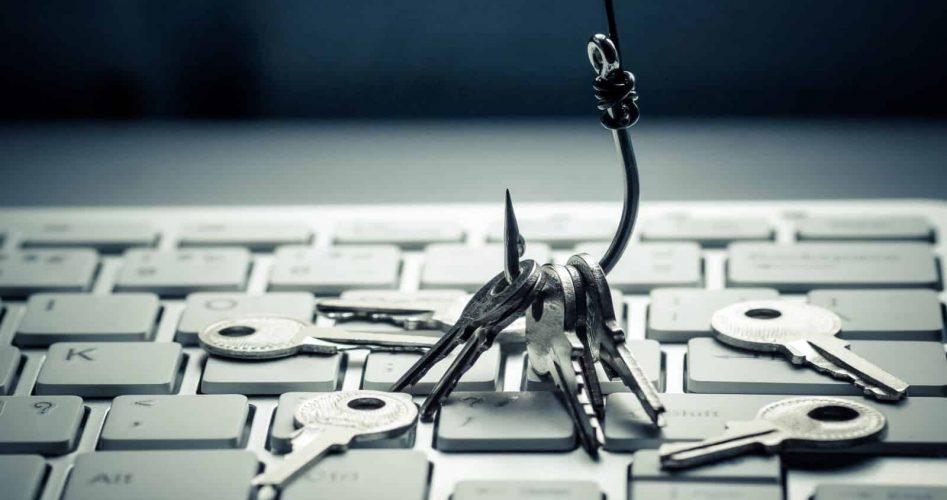Victim mentality refers to a state of continually feeling as though the world has wronged you. This mindset often comes with a self-centered view. Worse, it indicates that every bad thing that occurs stems from something that is “out to get you.”
This way of thinking is extremely unhealthy and toxic. Furthermore, it’s unfortunately common among those who have been at the hands of abuse or other toxic situations. Still, dealing with someone who continually considers themselves a victim can be draining. Moreover, it is not something you have to put up with. Here are four behaviors that reveal someone is acting like a victim.
1. They Have Lots Of Negative Self-Talk
Low expectations of oneself and a habit of “putting oneself down” are surefire signs that someone has a victim mentality. People who do this usually end up with a “why bother?” approach to life, simply not caring enough to do things for themself. They instead rely upon other people to do something for them, draining the energy of those who try to help. Negative self-talk causes people to expect failure, and positive thinking is nearly impossible for them.
· Negative Self-Talk
Those who have a victim mentality often believe that the challenges they face are direct reflections of their inability. This idea usually becomes internalized, with thoughts such as “I’m just unlucky, nothing I do works” and “Why bother, I can’t succeed anyways.” becoming a core part of their psyche.
The more negative events happen, the more deeply these beliefs are entrenched in the outlook of the victim. Eventually, they will become unable to get back up again after being knocked over because they erode their self-confidence with constant negative self-talk.
· Self-Sabotage
Usually, self-sabotage links closely to negative self-talk. Through constant negative self-talk, the victim begins to believe that they are simply unfavored by fortune.. And so they start to sabotage their actions to reinforce that belief subconsciously.
However, positive self-talk has the opposite effect – the person begins to believe they can succeed, and so they do reach for the stars. This confidence is the basis of the adage “fake it ’til you make it.”
· No Self-Confidence
A lack of self-confidence is another sign of a victim mentality. Those who view themselves as victims may think things such as “I’m not good enough to get a better job” or “I’m not smart enough to succeed.”
This mentality may prevent the victim from even attempting to improve and develop, causing their lives to become stagnant, which causes further self-victimization.
· A Self-Fulfilling Prophecy
A person with a victim mentality may, through force of will, attempt to improve. Usually, this results in them breaking through their self-imposed limits through positive thinking and becoming free.
However, if the victim fails, their mentality may become worse. The failure maybe because they expect to fail. This mindset sets up a self-fulfilling prophecy through self-sabotage. Their negative outlook may make it difficult for them to envisage a scenario in which they succeed, meaning that many victims cannot succeed simply because they don’t believe they can.
2. They Compare Everything
Those who have a victim mentality often compare themselves to others, for various reasons. Often, they exaggerate differences between themselves and others, claiming that they are disadvantaged or that another person has it much better than them. These people loathe acknowledging that they are not as badly off as they think they are.
· They Criticize Everything
Those who have a victim mentality frequently put others down in addition to putting themselves down by comparing others to an impossible ideal instead of appreciating how things are. This communication is similar to negative self-talk but directed at others. This dialogue occurs because the victim feels pleasure and a sense of superiority from masking their insecurities with insults and criticism of others.
To be more positive, the victim should instead take their energy and build others up, instead of tearing them down – what goes around, comes around!
· They Are Always Comparing Themselves To Others
The victim may also compare themselves to others, usually viewing themselves in a pitying and negative light. They perceive their flaws as much more significant and debilitating than they are, and ignore others’ shortcomings. This thinking provides a platform for the victim to claim that life is simply unfair to them.
The truth is that everyone has some flaws, but everyone also has their strengths. To think more positively, the victim should try to recognize that they have their talents and abilities, and use them to their full potential.
· They View Their Life As Lacking
A person with a victim mentality will usually look for the worst aspects of an event – be pessimistic, in other words. Instead of enjoying what they have, someone with a victim mentality frequently compares reality to what may be. This causes bitterness and resentment when the victim should be celebrating.
The victim ignores the positive sides of what’s happening and focuses exclusively on what’s missing. The victim then complains about what’s missing, then complains about complaining because of their negative self-talk, and so on. This is a very vicious cycle and only through positive thinking can one break free from a victim mentality and see the brighter side of life, and truly appreciate what one has.
3. They Never Take Responsibility
Never taking responsibility is a classic sign of a victim mentality. The victim refuses to accept the possibility that they contributed to their problems, preferring to cast the blame on others instead. They deflect any accusations or suggestions that they are responsible for their issues and ignore that they contribute to their problems. The victim does not overtly say that they are a victim of circumstances, but they instead indirectly suggest that they are.
Often, bad things do happen, even to people who have done nothing to deserve them. Everybody is likely to face at least some difficulties in their lives that are not of their own doing, but those who face many challenges usually begin to believe that the world is “out for them.” This may become a self-fulfilling prophecy, and this often results in the victim refusing to take any responsibility for their circumstances when they are the only person to blame for their failure.
Losing jobs is an excellent example of this mindset.
People frequently lose jobs through no fault of their own, as the company merely is laying off employees. However, it is also the case that there might also be underlying factors in play. For example, the employee may have lost their job because they are the least productive amongst their peers, or have a poor attitude. Someone who refuses to acknowledge these underlying factors is someone who cannot grow as a person, unless they change their perspective and embrace positive thinking, instead of feeling entitled.
In life, every happening is an opportunity to learn and improve. People with a victim mindset cannot see this, and instead, cause themself to believe that they are entirely innocent and that they are a victim of circumstances. If the victim stops deflecting blame, the victim will become a more positive person and will be able to avoid similar situations in the future.
4. They Are Stuck
Someone with a victim mentality is usually stuck in the past. They view themselves as unable to enact change, or that the effort required to change isn’t worth the outcome. Therefore, they make no attempts to improve or advance in their life, instead preferring to embrace familiarity and stagnancy. The victim always makes excuses for why they’re stuck. That’s because they blame external factors such as family or the economy. Rarely do they admit that they simply aren’t willing to put the effort in to improve.
The victim refuses to let the past go, instead deciding to hold onto grudges and past grievances like a concealed weapon. They play a grievance like a card when someone tries to hold the victim accountable for something. The victim will usually bring up the past as an excuse for why they cannot change. This prevents the victim from moving on with their life, as they are shackled to the past and mired in memories. They can release themself by:
· Letting Go Of Grudges
By letting go of their grudges, the victim can finally heal and improve. Being positive instead of bitter is one of the only ways to learn from mistakes and become a better person.
Bitterness is just holding the victim back and preventing them from moving on with their life. This anger does nothing to hurt the people who the grudges are against. Whilst this may be difficult, seeing a therapist may help the victim get out of their negative mentality. Counseling might help them embrace a more positive way of thinking.
· Ceasing Blame
Blaming others removes control from the victim, whilst letting go of the past returns it to the victim. Getting their power and control back allows the victim to escape from their self-imposed prison and enjoy life again. So releasing the pent-up resentment is one of the best ways for a victim to get back on track and start living in the present again.
If the victim brings up the past, hold them accountable for their flaws and actions. Also, try to convince them to hold themselves accountable, too.
· Being Aware Of Small Efforts and Results
The victim needs to be aware that even a small effort can yield an enormous improvement, instead of believing that trying is useless. To help the victim, help the person make a shortlist of small, achievable goals that they can make to get on track to a healthier mindset.
Final Thoughts On Some Behaviors That Reveal Someone Is Acting Like A Victim
People who play the victim with regularity are often passing on the toxicity from their former experiences onto their current relationships. Though many of these issues come from understandable and sympathetic causes, that doesn’t excuse current behaviors of entitlement or negativity.
Being able to recognize when someone is acting like a victim can help you avoid difficult situations with regular victim-players. You are under no obligation to do so. However, you can also help them to overcome their victimhood with some of the methods outlined with each behavior. Just remember to keep your own mental health in check before attending to the needs of others!

